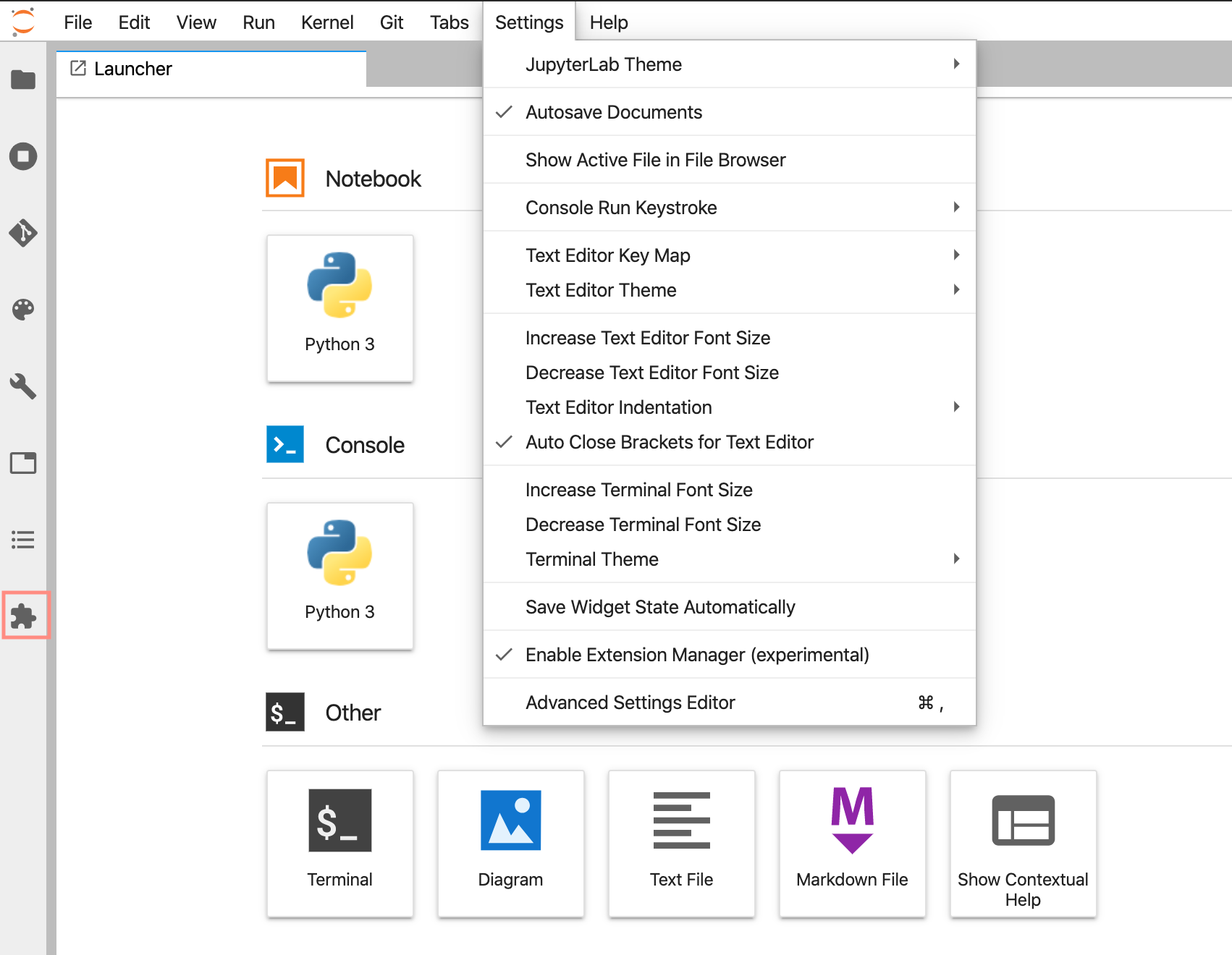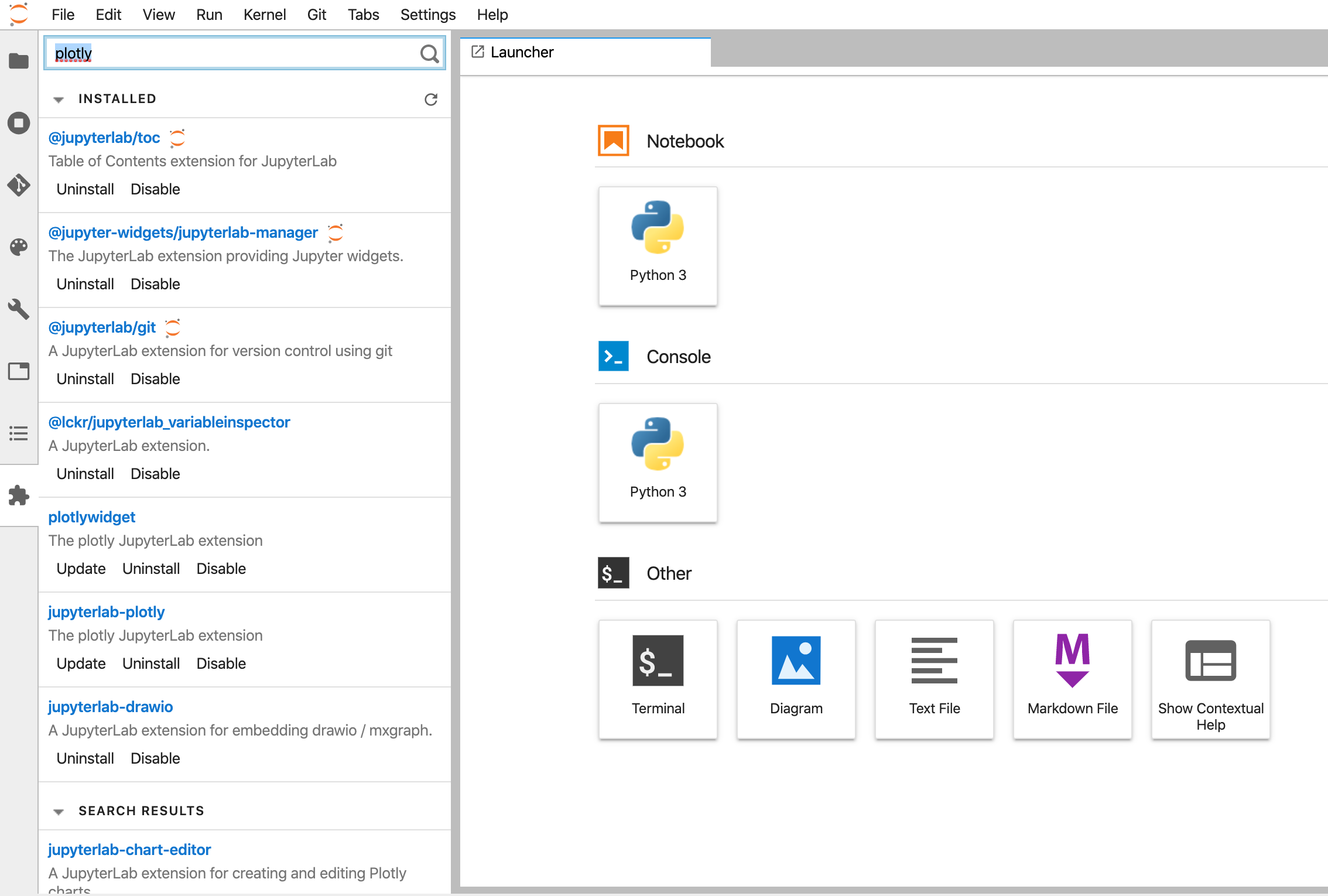My docker container for datascience.
- Base docker image is deepo
- Set Jupyterlab and install jupyterlab extensions.
- Install orca docker container to fully use data visualization package plotly.
build docker image
sudo docker build --tag datalama/deepo:lab .docker run
sudo docker run -itd -p 8888:8888 -p 6006-6015:6006-6015 --name lab --ipc=host datalama/deepo:lab jupyter lab --no-browser --ip=0.0.0.0 --allow-root --NotebookApp.token= --notebook-dir='/root'- I recommend add your volumes.
docker exec
docker exec -it lab /bin/zshhere's my favorites.
- jupyterlab with ipywidgets packages(e.g. tqdm.notebook, plotly)
jupyter-widgets/jupyterlab-manager
- To visualize plotly on jupyterlab
plotlywidget,jupyterlab-plotly
- draw.io
jupyterlab-drawio
- R studio style variable inspector
@lckr/jupyterlab_variableinspector
- table of contents for jupyter lab
@jupyterlab/toc
- jupyter lab extension for git
@jupyterlab/git
Sometimes, it is hard to build docker images with installing jupyterlab extensions. Then, I recommend install jupyterlab by hands.
- Enable Extension Manager
- Click Extension Manager(puzzle icon)
- Search, Install and Build !!!
If you use plotly to EDA or visualize your data, sometimes you may want to export your figure. At that time, you need the orca(Electron app). Howerver, running orca in your container is a little bit tricky(chromium issue).
I recommend referring to this notebook.
docker run -itd -p 8888:8888 --name nlp-lab --ipc=host datalama/lab:v2 jupyter lab --no-browser --ip=0.0.0.0 --allow-root --NotebookApp.token= --notebook-dir='/root'- jupyter 관련해서 좀 더 잘 사용하는 법을 알아보자


